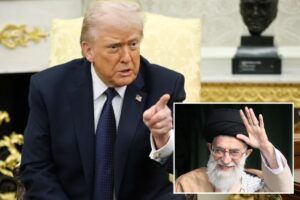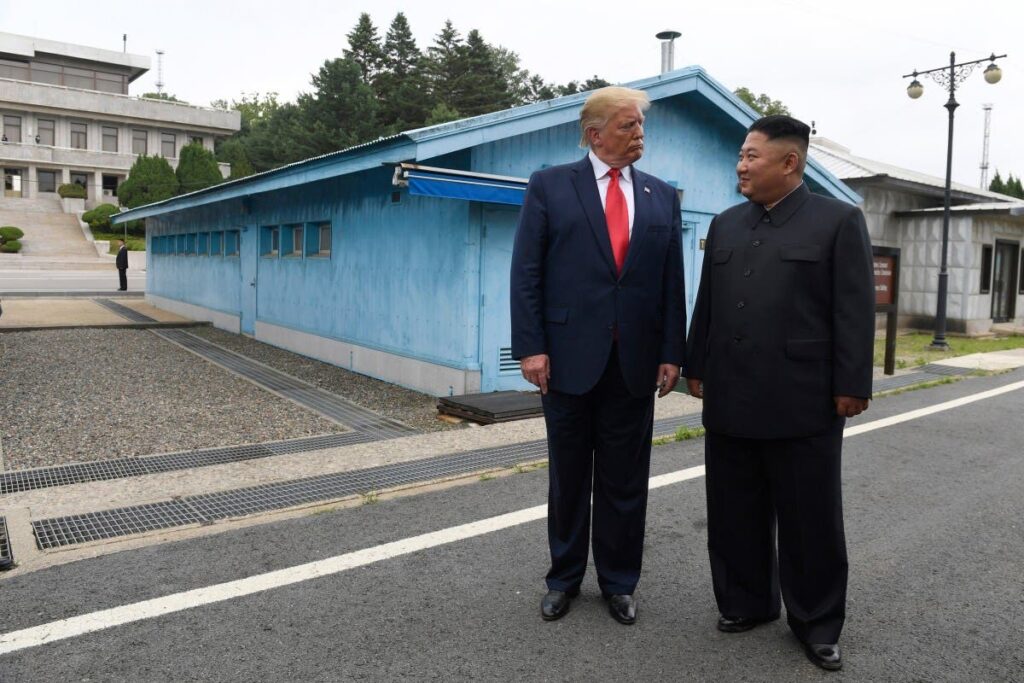The United States has imposed sanctions on eight North Korean individuals and two entities, accusing them of laundering funds from cybercrime and fraud and channeling them into the North’s nuclear weapons program.
Newsweek contacted the North Korean embassy in China seeking comment.
Why It Matters
Despite U.N. sanctions, North Korean leader Kim Jong Un has called for acceleration of the development of his country’s nuclear weapons.
Isolated North Korea has long been accused by the U.S. and various law enforcement organizations of financing its weapons programs through state-backed cybercrime, including cryptocurrency fraud. North Korea says it needs its weapons to defend itself from the United States and its Asian allies, which North Korea says are intent on regime change.
What To Know
The U.S. Department of the Treasury’s Office of Foreign Assets Control said it sanctioned eight North Korean individuals and two entities over their purported role in laundering funds derived from various illicit North Korean operations, including cybercrime and information technology worker fraud.
“North Korean state-sponsored hackers steal and launder money to fund the regime’s nuclear weapons program,” Under Secretary of the Treasury for Terrorism and Financial Intelligence John K. Hurley said in a statement.
“By generating revenue for Pyongyang’s weapons development, these actors directly threaten U.S. and global security. Treasury will continue to pursue the facilitators and enablers behind these schemes to cut off the DPRK’s illicit revenue streams,” he said, referring to North Korea by the initials of its official name, the Democratic People’s Republic of Korea.
North Korea relies on a broad range of illicit activity, including cybercrime, to generate revenue for its nuclear weapon and ballistic missile programs and it “explicitly tasks its hackers to raise revenue using illicit methods,” the office said.
North Korean hackers are responsible for conducting high-level cyber-enabled espionage, disruptive cyberattacks and financial theft at a scale unmatched by any other country, it added.
“Over the past three years, North Korea-affiliated cybercriminals have stolen over $3 billion, primarily in cryptocurrency, often using sophisticated techniques such as advanced malware and social engineering,” the office said.
Among the sanctioned individuals are Jang Kuk-chol and Ho Jong-son, two North Korean bankers accused of helping manage illicit funds, including $5.3 million in cryptocurrency, a portion of which is linked to ransomware that has previously targeted U.S. citizens and handled revenue from North Korean information technology workers, the office said.
What People Are Saying
The Office of Foreign Assets Control, in its statement: “The DPRK relies on a vast network of internationally located representatives of DPRK financial institutions who provide access to international markets and financial systems, allowing the DPRK to launder revenue generated through illicit financial activities, including fraudulent IT work, heists of digital assets, and sanctions evasion schemes, in support of its WMD and ballistic missile programs.”
What Happens Next
U.S. President Donald Trump has raised the possibility of engaging again with Kim, which could involve negotiations on its weapons of mass destruction. But it remains unclear when such a meeting might take place, and whether concessions would be on the table without steps toward the North’s denuclearization.
Read the full article here














